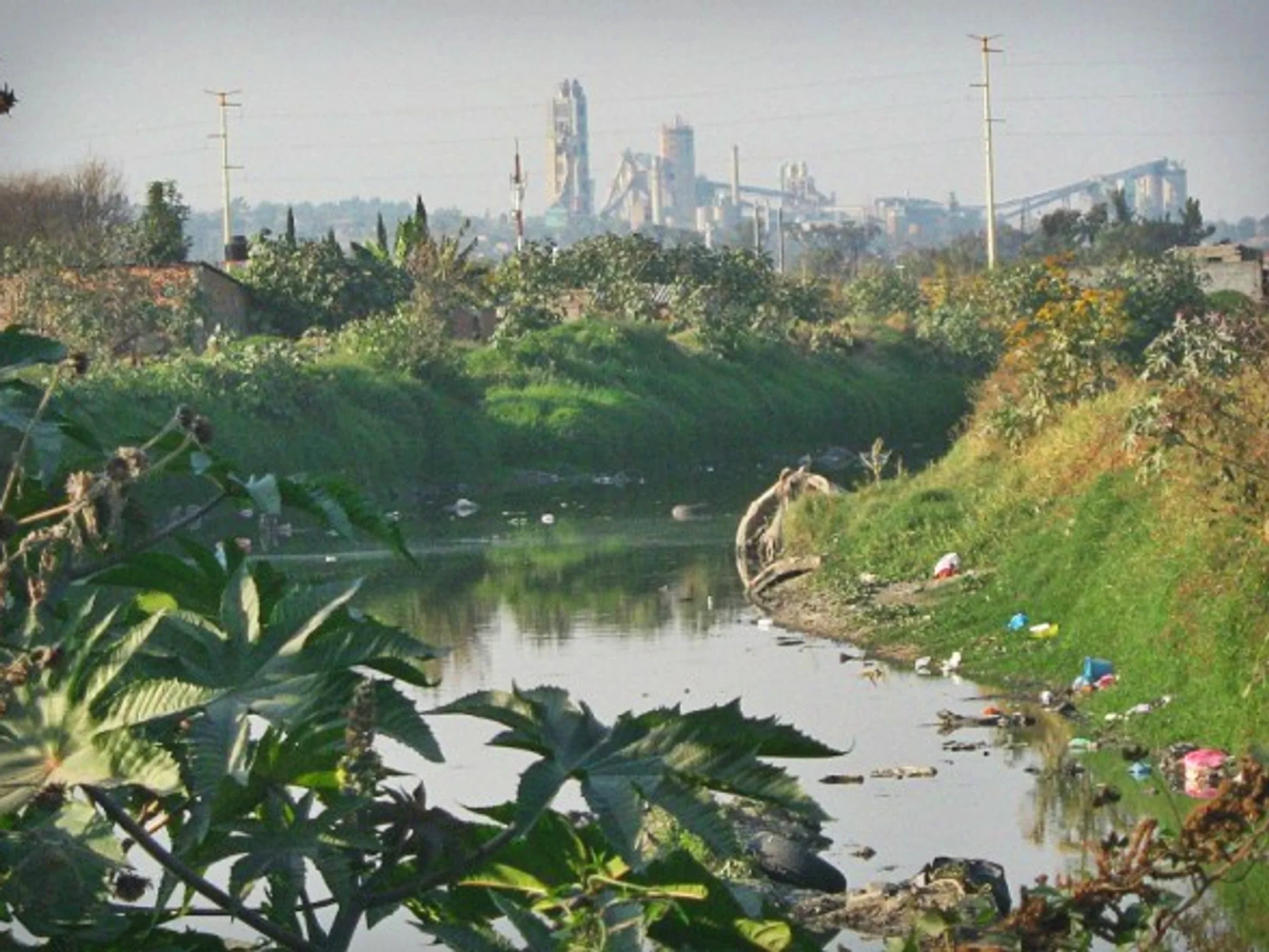Understanding that rivers lie at the heart of interconnected issues, from well-being to the environment and industry, Mexican State governments have begun to take an integrated approach to the management of their rivers. At the UN Water Conference in March of this year, we will discuss their inclusive and consultative approach to river governance, which interconnects human rights, economic, and environmental considerations.

Rio Grande de Santiago. Source: Rosa Luxemburg-Stiftung
Rivers are at the centre of human life. Serving as sources of navigation and commerce, potable water, energy, industry, and recreation, they are the veins of human civilisation. But being at the centre of human activity has its consequences – the vitality of rivers around the world is diminishing due to damming, pollution, and resource depletion.
In response, forms of ‘river co-governance’ have risen. These are projects and policies that aim to integrate different stakeholders to address the ecological, cultural, political, economic, and even technological dimensions of water management. In tandem, new water justice movements have emerged worldwide for the democratisation of rivers. In Mexico, the emergence of river co-governance has meant a renewed focus on socio-ecological well-being, as the socioeconomic livelihood of millions is tied to the health of its rivers.
Two Essential River Systems
The Santiago and Santa Catarina Rivers are two of the most crucial rivers in Mexico. The Santiago River is the second longest in the country, an important source of economic development in the region. Comparably, the Santa Catarina River is the lifeline to the northern city of Monterrey, one of Mexico’s largest cities and an industrial powerhouse in its own right. Maybe because of their importance to human activity, both rivers are among the most polluted in the country.
With limited central authority – and a limit to their available resources – officials in Mexico City have been unable to offer top-down solutions to ensure that both rivers remain clean. Instead, it is up to the state governments of Jalisco and Nuevo León to restore the Santiago and Santa Catarina Rivers, respectively. The two cities have developed a joint vision to work with local, national, and international partners to restore their two main rivers. Through projects of ‘river co-governance’, both state governments are jointly working to circumvent their own limits by tapping into the resources, expertise, and experience found in different sectors.
Integrated Strategies
New, integrated strategies in water management involve tackling the different sources of pollution with innovative tools and progressive human rights and governance considerations. This approach, for example, focuses on providing water access to women who are often left at home to find water. By ensuring their families’ water access – a basic human right -, women could instead pursue better economic or educational opportunities. Additionally, for Native American communities, inclusive and consultative water management could also mean the better preservation of natural habitats for socioeconomic and cultural well-being.
Within this context, the governments of Jalisco and Nuevo León have been working to exchange experiences, best practices and challenges around the management of Mexican rivers with an inclusive approach. They understand that multi-stakeholder interactions are crucial to understand and support river co-governance initiatives and sustainable socio-ecological river systems. Using the 2030 Agenda for Sustainable Development as an additional skeleton, both state governments have already set out on their integrated strategies.
International Cooperation
This integrated management of rivers was one of the issues discussed during the Dutch Water Mission to Mexico in September 2022, which was attended by The Hague Academy. The visit, led by Henk Ovink (Special Envoy for International Water Affairs) allowed Dutch and Mexican stakeholders to share their experiences and challenges in the water sector with the aim of creating partnerships to develop joint solutions.
Following the Dutch Water Mission to Mexico, preparations began for formally inviting several subnational governments to the UN Water Conference scheduled to take place in New York from March 22 to 24, 2023. The Hague Academy will be attending to ensure a local governance perspective is included in conference discussions and to highlight the need for education, training and capacity-building in achieving the 2030 Agenda for Sustainable Development.
At the UN Water Conference
The Hague Academy has partnered with the Dutch Embassy in Mexico, Centro de Estudios e Investigación en Asuntos Públicos, and several subnational governments in the country, to organise a side event at the UN Water Conference. The event will highlight the challenges and solutions to integrated river management in Mexico. This side event will allow five Mexican States facing different realities around water to come together and voice the lessons they have learnt when it comes to river management and social inclusion, namely that they are problems to be tackled as one.
Related courses
We offer a diversity of courses throughout the year. Here are several other courses you might like.

